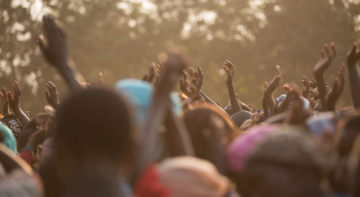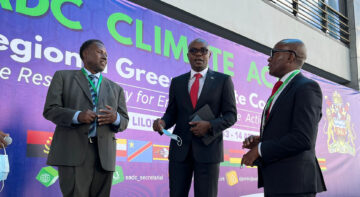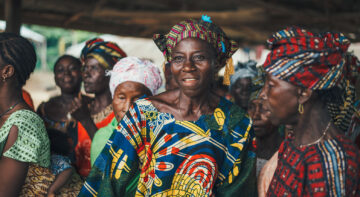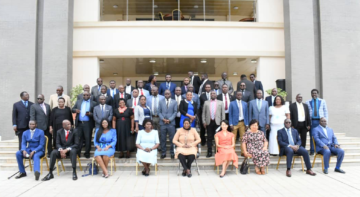Blogs
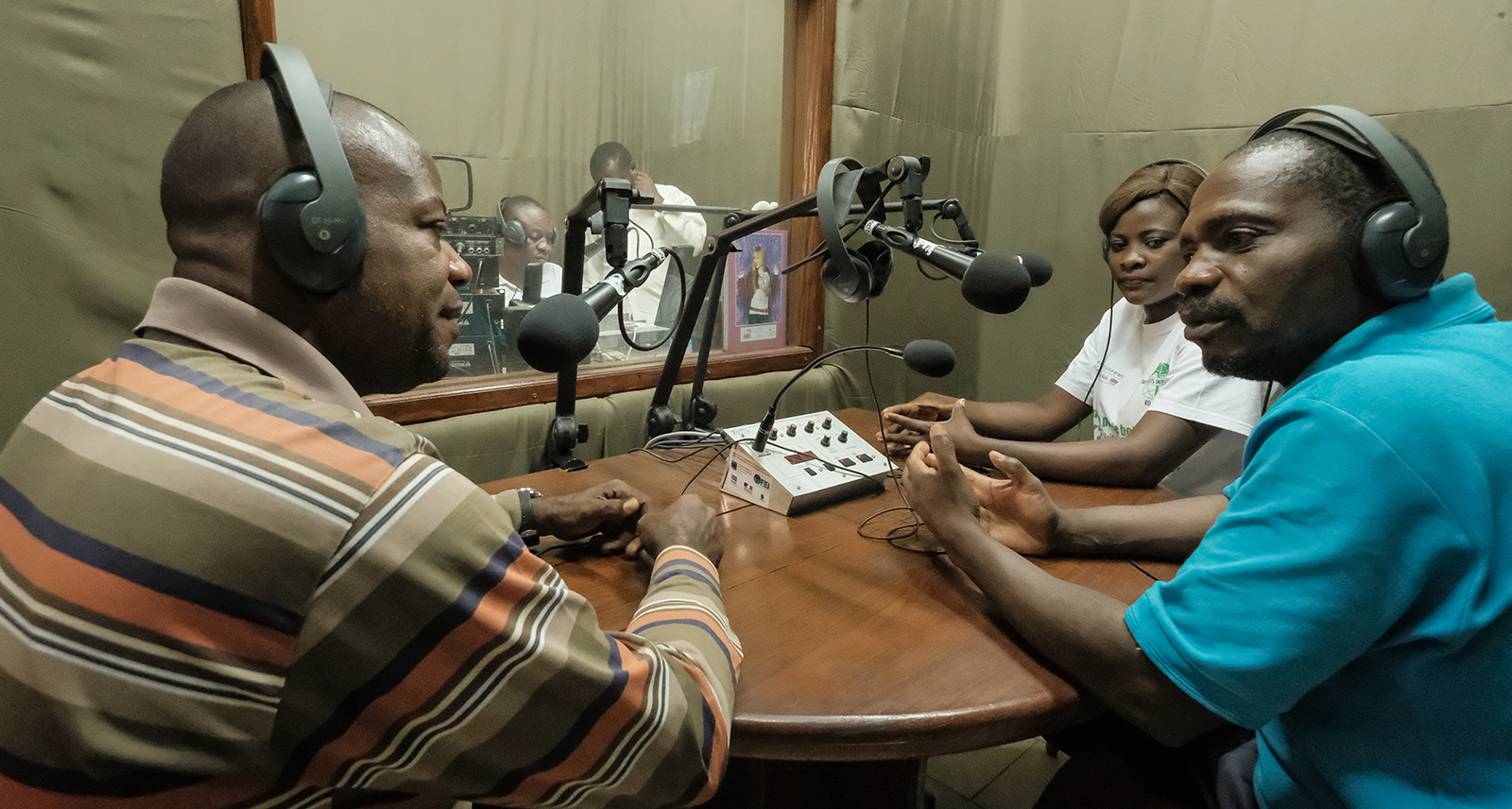
Many experts agree that poor governance remains a major issue undermining development efforts in sub-Saharan Africa. In any country, parliament is a central institution for enabling good governance given its functions of oversight over the Executive, budget appropriation and tracking, law-making, and representation. To play these functions effectively, parliament needs other actors, key among them is the media.
In its own right, the media is the public’s watchdog, providing information to the public of how the government (including the Executive, Parliament, and Judiciary) are delivering their duties to the public and expending public resources. Parliament needs the media to inform the public on how it is conducting its functions. It also needs the media to facilitate public participation in parliament’s functions.
AFIDEP is supporting the Parliament of Malawi to address the issues that undermine its performance (read more about the Malawi Parliament Enhancement project). This work is funded by Norway’s Ministry of Foreign Affairs through the Royal Norwegian Embassy in Malawi.
As part of this work, we are working with parliament and media in Malawi to improve the quality of media coverage of parliamentary affairs. Specifically, this work is focused on improving the relations between parliament and the media to enable sustained exchange and sharing of information, and to develop the capacity of parliamentary reporters to ensure an improved understanding of Parliament, its language, procedures and traditions, and its central role in tackling poverty by enabling good governance.
Parliamentary journalists eager to develop an in-depth knowledge of parliament and its work
We have been interacting with 25 journalists from different media houses in Malawi who cover parliament through capacity development workshops since March 2019. The initial workshop focused on building journalists’ knowledge in the language of parliament, the Standing Orders that guide parliament procedures, the bill processing stages, and the central role of parliament in enabling democratic governance.
While generally, the journalists had an average understanding of parliament and its procedures and traditions, many have found the sessions deeply enriching their understanding of parliament. “The discussions on the Standing Orders from the first workshop made me decide to read the Standing Orders in order to have a deeper understanding. And this is helping me do better stories now. For instance, I just did a story on the nomination of the leader of opposition in the new parliament, and I was able to do this story and provide context because of my improved understanding of the Standing Orders,” said Mr. John-Paul Kayuni, one of the journalists involved in these workshops.
The focus on enhancing understanding of the central role of parliament in a country’s development efforts and improving governance has been critical to ensuring that journalists provide context to the stories they write on parliament. In sharing her experiences covering the Kenyan parliament at one of the workshops, Ms Roselyne Obala said: “you cannot give context to what you do not understand.” It’s therefore critical that parliamentary reporters develop an in-depth knowledge of parliament, and the Constitution and laws, if they are to improve the quality of coverage.
Mr. Trust Ofesi, one of the Malawi journalists, said that “before these training sessions, I have been covering parliament activities like events, without linking them to the role of parliament. But with the understanding that I now have on the role of parliament in good governance, I am now starting to ensure that I link my stories on parliament to development issues.”
Another journalist, Ms. Brenda Twea, said “I’ve done a story that questioned MPs’ focus on giving handouts to constituents and buying coffins for funerals in their constituencies, which is not their role. I wrote this story because of the discussions we had in the first workshop on the roles of MPs.”
But whose role is it to ensure that journalists have the capacity they need to effectively report on parliament?
Many of the journalists get allocated to cover parliament without any prior training or knowledge on parliament. This is the case with most of the journalists we have been interacting with under this work. Both parliament and media need to invest in developing the capacity of journalists dedicated to covering parliament. Ms. Obala, the journalist from Kenya, noted that the Kenya Parliamentary Journalists’ Association has been instrumental in engaging parliament strategically to support capacity development for journalists on parliamentary affairs, but also in raising funds from development partners to train journalists who report on parliament.
Media and parliament need a platform for enabling sustained engagement and improved relations
Some of the challenges that hinder journalists from providing quality coverage of parliamentary issues are weak relations with the Parliament’s leadership. For instance, the journalists we have been interacting with in Malawi have decried the fact that some committee chairs in parliament block them from attending committee meetings which should be open to the public. They also said that it’s so hard for them to get an audience with the Speaker of Parliament to discuss these challenges.
While the journalists and Malawi Parliament’s Public Relations office have created a Press Gallery Committee to provide a platform for journalists to engage Parliament’s leadership, this committee has been relatively inactive and therefore not playing this role. Partly is because most committee members are no longer actively covering parliament.
The Kenyan journalist noted that Kenyan journalists faced these similar challenges several years ago, and the decision to form the Kenya Parliamentary Journalists Association was made to address this challenge. The association has a Constitution and is formally registered, and it has the Speaker of parliament as its patron. The association facilitates quarterly meetings between journalists who cover parliament and the leadership of parliament to, among others, discuss and resolve challenges.
Form these conversations, Malawi journalists have committed to reviving and strengthening the Press Gallery Committee so that it can provide the platform for sustained engagement with parliament’s leadership.
A media centre was also noted as critical, but currently missing in the Malawi parliament. A media centre would provide a working space in Parliament for journalists, making it easy for them to prepare and file stories from Parliament. This is an area where the parliament of Malawi would benefit from support from development partners focused on improving governance in the country.
Media owes it to the public, which elects parliamentarians, to oversight parliament
While parliament has an oversight role over the Executive and the Judiciary, there is no institution charged with oversighting parliament. As the public’s watchdog, the media, therefore, have a role to oversight parliament. To play this role, journalists must not only have a deep understanding of parliamentary affairs but also be critical and analytical in the way they cover parliament. Much of political decisions are not made in formal meetings of plenary or committees; rather these decisions are made “behind the scenes” or the “under the table”. As such, journalists need to develop and nurture sources of information among politicians and parliamentary staff to understand the decisions that committees and MPs make in parliament. These sources are invaluable in providing information on the machinations that often inform public policy decisions. Investigative journalism skills also come in handy.
Discussing this issue, journalists noted the challenges they face is nurturing information sources in parliament, and still ensuring “arms-length” relationships to maintain objective and balanced coverage. Some lamented about information sources who eventually become friends, making it hard for them to do stories that uncover wrong-doings by these sources. Others talked about sharing such stories with other journalists or media houses to cover such stories in efforts not to affect the information sources. Others argued that the best way is to be clear to the information sources that the role of media is to inform the public, and not to keep secrets of political leaders.
Another challenge that undermines media’s role in oversighting parliament is the fact that media owners are often political leaders or business men/women with close relations with political leaders. Journalists noted many instances where stories are not published because of the interests of the media owners. Also, the reliance of media on advertisements from government often results in some media stories being “killed” in efforts to sustain income coming from government advertisements.
Related Posts
